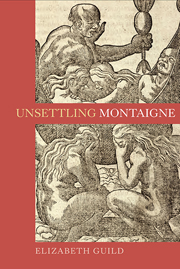Book contents
- Frontmatter
- Contents
- Acknowledgements
- Author's Note
- Abbreviations of Journal Titles
- Chronology
- Introduction
- 1 The Possibility of Their Being Otherwise
- 2 ‘Je ne vois le tout de rien’: The Cannibal and the Place of Knowledge
- 3 Cannibal, Beloved: On Eating What is Good …
- 4 Confessions: The Desire for Knowledge, the Passion for Ignorance
- 5 Tickling, Shaking, Shitting
- 6 The Place of the Brother
- 7 Uncertain Futures
- Bibliography
- Index
6 - The Place of the Brother
Published online by Cambridge University Press: 05 April 2014
- Frontmatter
- Contents
- Acknowledgements
- Author's Note
- Abbreviations of Journal Titles
- Chronology
- Introduction
- 1 The Possibility of Their Being Otherwise
- 2 ‘Je ne vois le tout de rien’: The Cannibal and the Place of Knowledge
- 3 Cannibal, Beloved: On Eating What is Good …
- 4 Confessions: The Desire for Knowledge, the Passion for Ignorance
- 5 Tickling, Shaking, Shitting
- 6 The Place of the Brother
- 7 Uncertain Futures
- Bibliography
- Index
Summary
Je sçay bien ce que je fuis, mais non pas ce que je cherche.
‘Je me trouve quasi tousjours en ma place’
In June 1580, having published the first two books of the Essais, Montaigne left his home for over a year, to travel, via Germany and Switzerland, around northern Italy. His account, the Journal de voyage, records things and people seen in places visited, customs and beliefs, as well as considerable detail about his experience of different spas, and about the illness and pain that led him to try out the waters as potential sources of cure. It also conveys Montaigne's curiosity about the other, such as courtesans, Jews, those thought to be possessed, or those required to convert.
The direction of travel is towards openness and possibilities. The most significant places visited – Venice, Ferrara, Rome and Bains della Villa – have symbolic potential; likewise Montaigne's body, a different kind of place. The journey and these places gain significance when the Journal is read with chapters in the Essais, primarily ‘De la vanité’, which reflects on the desire to travel and on metaphorical journeying. It traces an arc from the vanity (futility) of writing about himself to the vanity (self-delusion, false perspective) of the place of humans in the world. The Journal and this chapter also need to be read together with Montaigne's letter to his father on the death of his friend La Boétie; for his ‘brother’, as Montaigne so insistently calls him in the letter, has a place in Montaigne's journey and his writing about it.
- Type
- Chapter
- Information
- Unsettling MontaignePoetics, Ethics and Affect in the Essais and Other Writings, pp. 203 - 241Publisher: Boydell & BrewerPrint publication year: 2014



